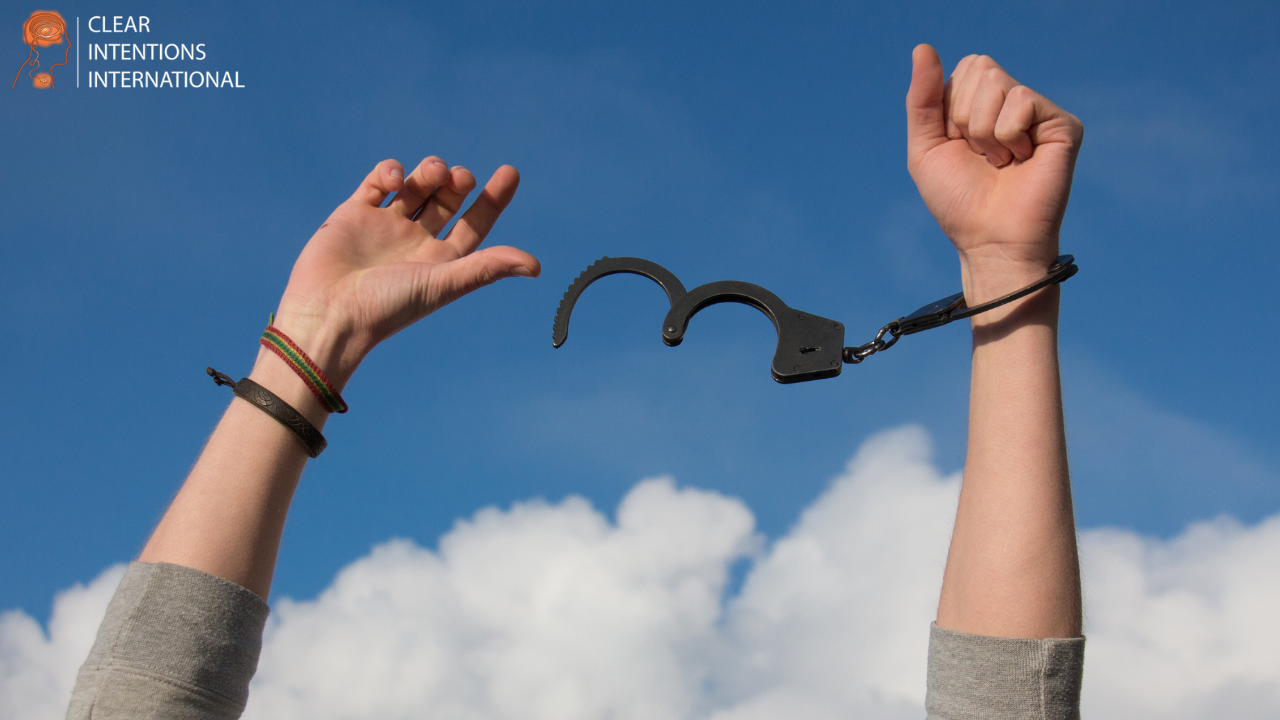By Dr. Barbara Schwarck, Certified Coach and CEO of Clear Intentions International.
“I have learned that champions aren’t just born; champions can be made when they embrace and commit to life-changing positive habits.”
Lewis Howes
Have you been eating more since COVID-19 has placed restrictions on your life? What about drinking, or binge-watching TV or movies? Perhaps you are a workaholic, and to avoid the constant day-to-day stress you work even more, or exercise more intensely.
I invite you to stop for a moment and ask yourself:
“What unhealthy behavior(s) have I acquired or increased since life has thrown me a major curveball?
Take out a piece of paper and write them down. Decide if you want to do something about at least one of these behaviors. If the answer is yes, good for you! I’ll show you how to replace your addictive patterns and upgrade them with behaviors that will add more balance and health in your life, and help you feel better about yourself.
Addiction is a challenging topic. No one likes to be labeled an addict. When we talk about addiction, people often refer to hard drugs and alcohol. Rarely do we define our overeating, oversexing, overworking, and oversleeping as addictions. We laugh and say we are “addicted” to Netflix or food, but we certainly do not treat these things as addictions because we don’t see these as life-threatening behaviors (at least not immediately.) This is especially true when it comes to food. Most people don’t know how to eat properly and are not in control of their eating patterns. Instead, emotional eating controls them.
What is Addiction?
The classical definition is “The state of being compulsively committed to a habit or practice or to something that is psychologically or physically habit-forming, such as narcotics, to the extent that its cessation causes severe trauma.” Yet we know that addiction encompasses so much more than the abuse of physical substances, and also includes any habitual behavior that is repetitive and brings a negative result in your life, such as negative thinking, gossiping, and judging others.

Humans, by nature, have addictive personalities. We are born with what used to be part of a survival mechanism: our reptilian brain. It is responsible for survival and is still programmed to respond in a particular way.
Understanding loss aversion, hidden threats and the brain in overdrive.
Human beings are conditioned to hold on to things twice as long as they are conditioned to let them go, even if these things (or behaviors) are not beneficial. This pattern is known as loss aversion, and is the reason we find it so difficult to let go of negative patterns. It made sense as cavemen, for example, to hold on to a safe space while hungry rather than leave the cave to hunt and face the threat of death. Unfortunately we are still saddled with this survival of the fittest instinct, despite the fact that it doesn’t always benefit us.
Today, the things that threaten us are not always so immediate or apparent. Therefore, we must train ourselves to understand this in order to increase our ability to respond appropriately to stressful situations.
This is especially true, and so timely, for threats we have experienced due to COVID restrictions. These are covert threats, those on the surface that are “not really” killing us. However, our reptilian brain is working overtime to decipher whether the threat is perceived or real. At the same time our rational mind, the neocortex, is trying to explain the situation to us, while our limbic, or emotional brain, is being triggered all the time. This is an impossible situation that as we see, results in so many people who are struggling to balance their mental health.
So what can we do to improve our addictive behaviors? How can I control my eating, get more sleep, work reasonable hours, or watch less TV?
Meditation.
About 28 years ago I rediscovered meditation. I was originally exposed to it in my late teens, but I didn’t really understand what it meant or why people were working so hard to create a regular meditation practice. As an adult, I decided to make my spirituality a priority, and created a regular daily meditation practice. I realized that it would be easier if meditation replaced one of my addictive behaviors (or perhaps even two or three.)
For the last twenty years, I have fought with myself to enjoy meditation. I have begged, pleaded and threatened my body, emotions, and mind to settle down. I committed to a schedule in small increments, bribed and congratulated myself, and from time to time had a good practice going. But I never really enjoyed it. I looked at meditation as something I had to do. At times I felt like it was bringing me closer to God, but more often than not I simply felt frustrated. Nevertheless, I never gave up. I stuck with the discipline and hoped that one day it would be easy and graceful.
Three months ago, a day I could only have dreamt about arrived. It came as a complete surprise, but one afternoon, when my timer went off at the end of a 45 minute meditation session, I didn’t want to stop! I wanted to keep going – and since I could, I did. When I opened my eyes 20 minutes later, the feeling of wanting to keep going was still with me. It was then that I realized that my feelings about meditation had changed.
All of my struggles to stick with it had been worth it because I conditioned myself to want to meditate. In that moment of realization the most wonderful feeling of gratitude came over me.
How did I do it? It was a process that included four stages:
Acceptance. Discipline. Action. Commitment.
Let’s talk about Acceptance.
According to many different spiritual traditions, the first law of the spirit is acceptance. (We find this in Christianity, Buddhism, Taoism and Judaism, for example.) What is acceptance? It means being okay with what is and taking it at face value, and letting go of judgments that are present inside you. In the case of my meditation practice, it meant being okay with my body being restless, my mind racing, wondering what the purpose was, etc.
Once I accepted the fact that I was probably not becoming the world’s strongest meditator and might never find enlightenment, I was able to let go of the pressure and focus on creating a routine.
Let’s talk about Discipline.
Oh, discipline, friend and foe. Somewhere in some seminar, I heard that “discipline would set me free.” While that made sense to me logically, my practical self did not understand and did not want to cooperate. The rebellious teenager inside me certainly did not want to be disciplined. After all, I had worked a lifetime to get away from discipline. There were times when I followed a routine meditation schedule and then there were months when I didn’t do anything. And there were times when I just gave up and quit – but the quitting was never forever. Eventually I would pick it up again and start another round. After a time (years), I realized that it was just easier to do it. Instead of feeling guilty about a broken commitment, I felt empowered and strong.
It took me time to realize that discipline means freedom: freedom to choose to meditate or not meditate; a choice not driven by immediate desires, but by my mind and body that were free to override them.
Let’s talk about Action.
I love action. I am a doer. So you can understand why I have a hard time with meditation. It is a being skill, rather than a doing skill. In order to better understand our addictions, two elements need to be present: action and insight. Action without insight produces burnout, insight without action produces mindless running around. Insight combined with action produces learning and change. And change was what I wanted. If I wanted to get good at this meditation thing and reduce other addictive behaviors in my life, I needed to connect the two. In my case, I decided to let go of watching TV.
Let’s talk about Commitment.
This is perhaps the most important ingredient in the formula. Commitment is the endurance vehicle that leads us to our goals. In my case, it was enjoying meditation and doing it on a regular basis. I believe that commitment is the deciding factor between making it and not making it. It’s not about the mistakes, or the months of not doing something, it’s about being committed to a long-term vision or goal.
I base my approach to coaching on a very famous quote of disputed origins:
“Until one is committed there is hesitancy, the chance to draw back, always ineffectiveness. Concerning all acts of initiative (and creation), there is one elementary truth, the ignorance of which kills countless ideas and splendid plans; that the moment one definitely commits oneself, then the providence moves too.”
Edison was committed to inventing the light bulb and tried thousands of times. With commitment comes the keeping of agreements, which brings an automatic reward: increased self-esteem. Each time you commit to something and keep that commitment, you raise the level of trust and belief in yourself.
Realize that you are in charge of your habit patterns.
Most of our socially acceptable addictions come from habit patterns that are connected to emotions, unfulfilled needs and certain rituals (“I must smoke after dinner.”) Each one can be replaced with something uplifting. Allow yourself to take a look at your unfulfilled needs and decide what you want to do. Start by taking a walk after dinner, meditate, or read uplifting materials and see if these new patterns can fill your needs. If you are committed to creating a new pattern and take care of your needs in a new way, you will succeed. You may not enjoy it at first, but with time the rewiring will come, and eventually you will have created a new habit pattern for yourself.
You can upgrade your socially acceptable addictions if you are committed – and willing – to endure to the end; and if you are willing to commit to some discomfort in order to get to that incredible feeling when you reach your goal. Remember, most of our addictions make us feel comfortable, and changing them means being willing to put up with some discomfort for a while.
Our new habits ultimately bring us much more happiness and true comfort with our bodies, with our inner selves and are a better use of our time. And that is most definitely worth it!
Dr. Barbara Schwarck is the founder and CEO of Clear Intentions International and the author of From Intuition to Entrepreneurship: A Women’s Guide to Following Her Dream. She has been helping individuals and teams get unstuck and change for over 20 years. Dr. Schwarck is the creator of Neuro Emotional Coaching® a cutting-edge coaching tool rooted in neuroscience, emotional intelligence and its implication for leadership. An award-winning, dual-certified coach with extensive academic training in Psychology, Management, Spirituality, and Kinesiology, she has successfully coached thousands. She works extensively with corporate executives and teams on emotional intelligence in the workplace and effective leadership. In her private coaching practice, clients work with her on anxiety/depression, self-esteem, relationships, and/or personal growth. If you are ready for a breakthrough, go to clearintentions.net.


